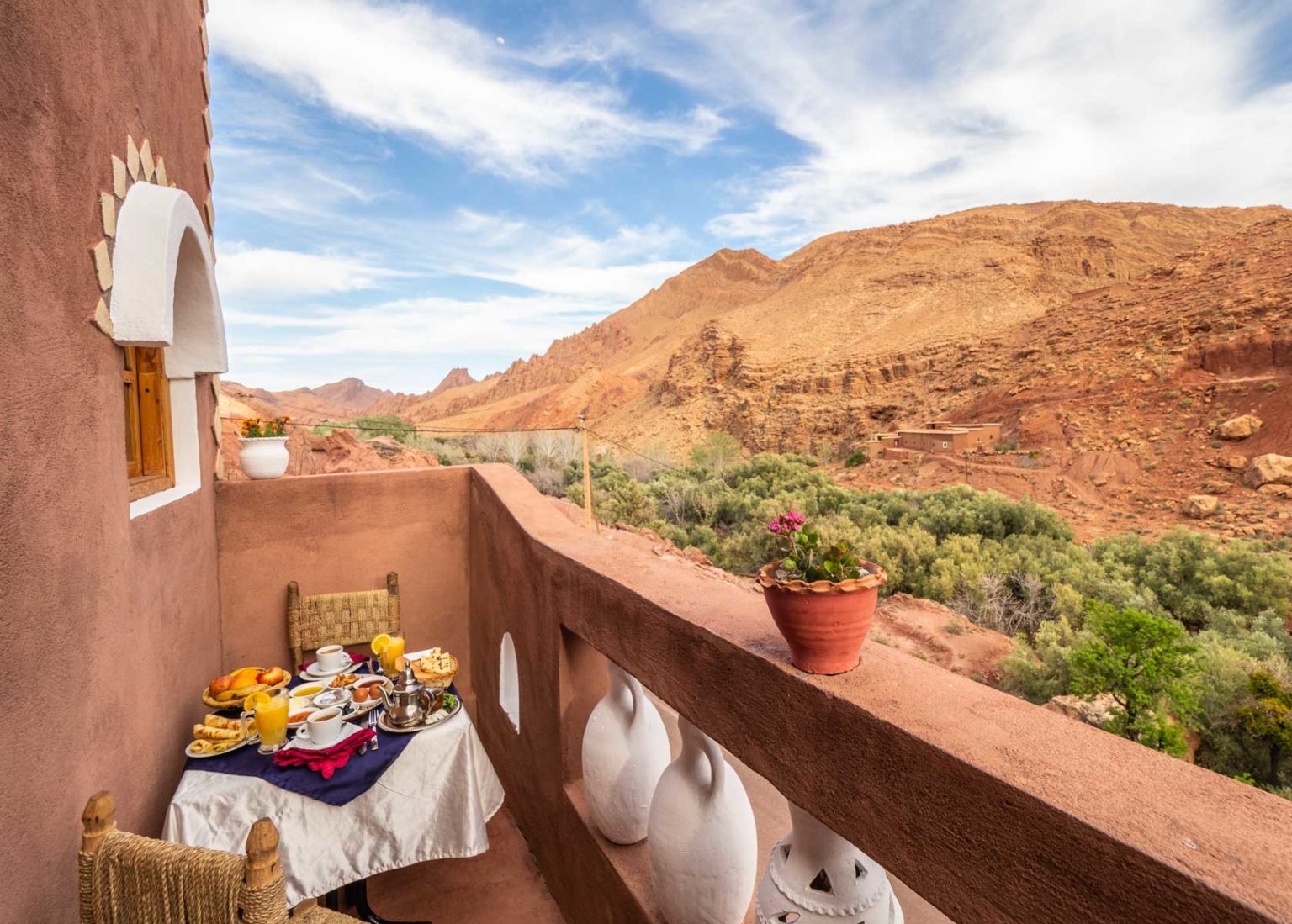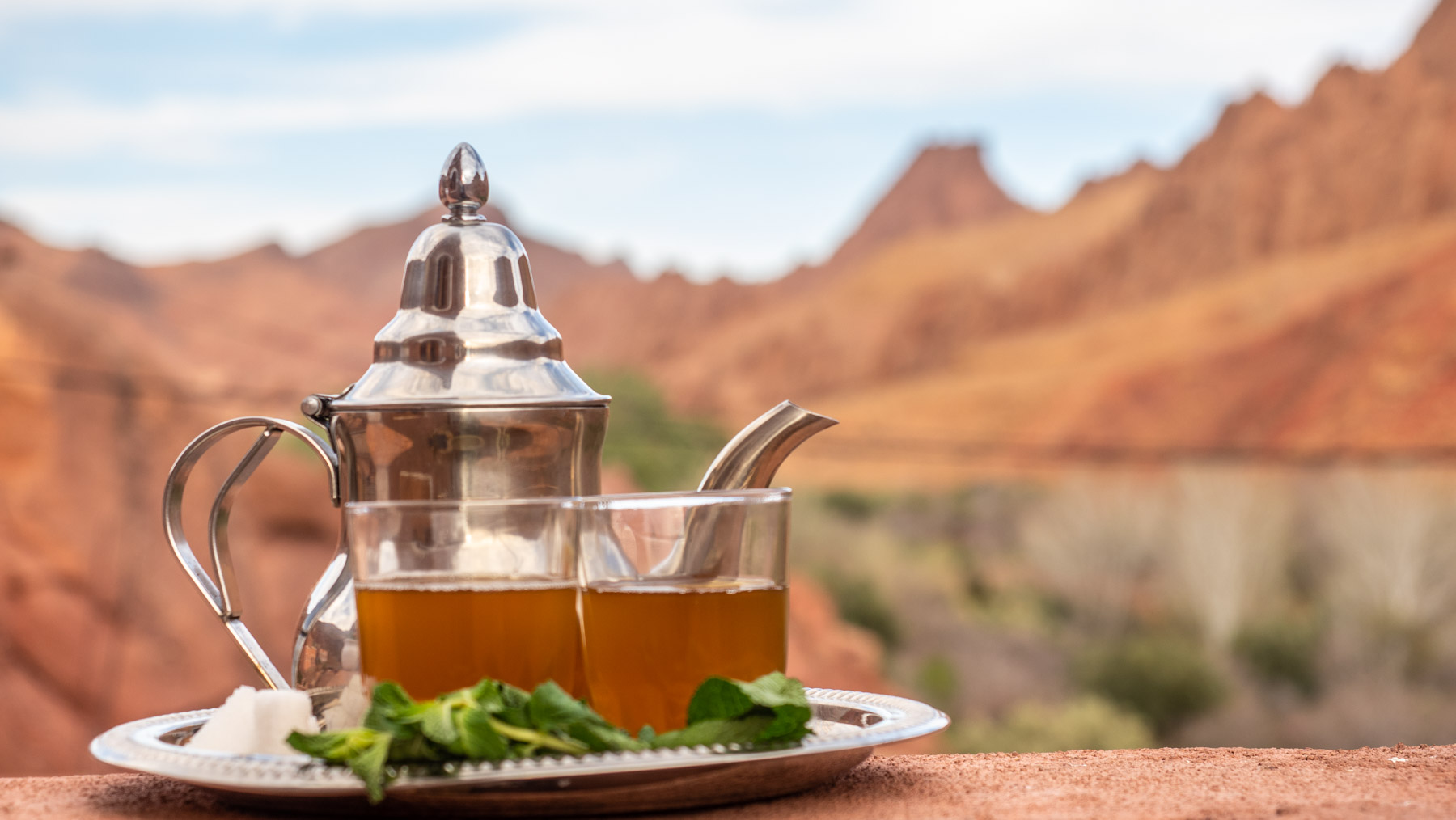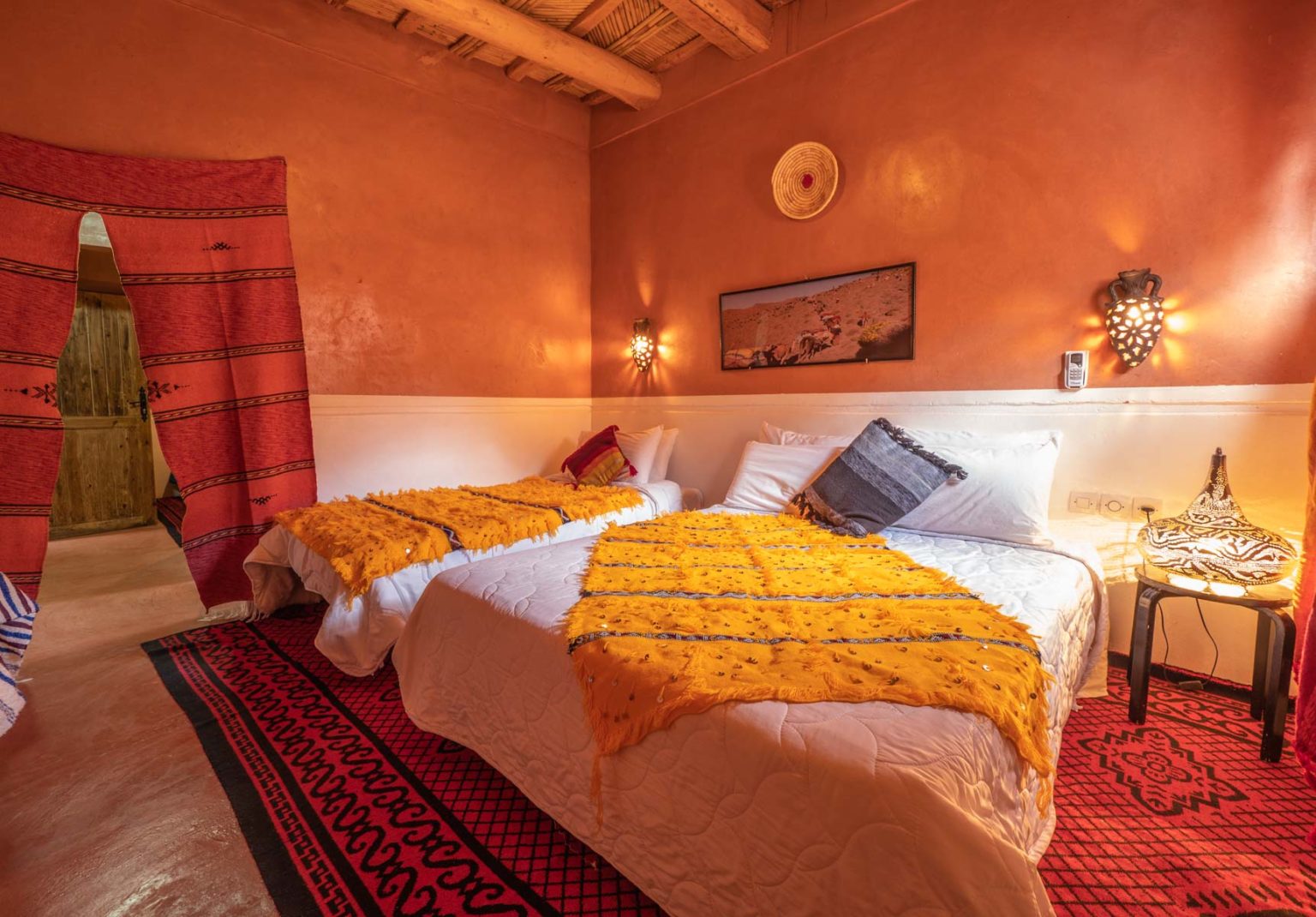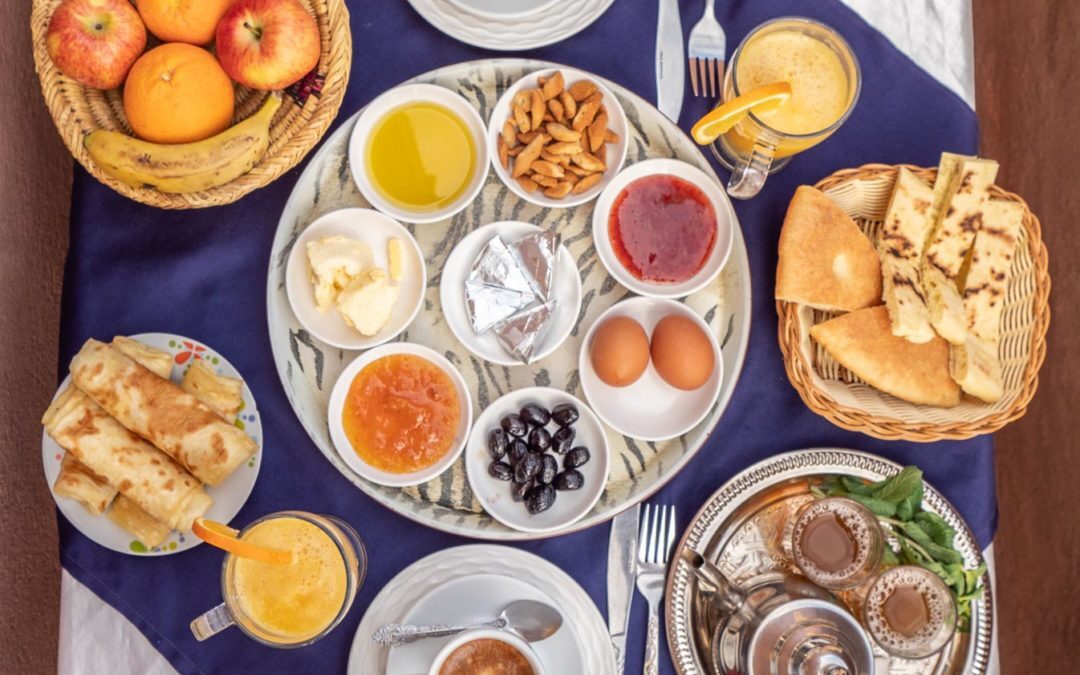
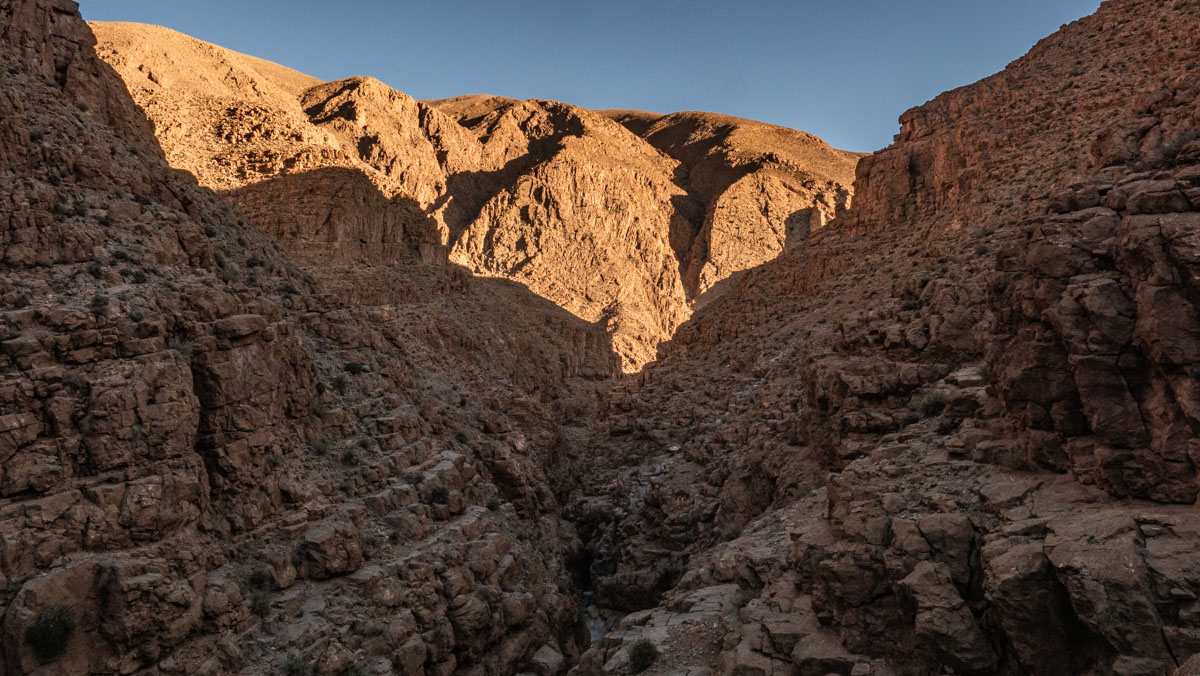
Berber Cuisine: A Taste of Tradition in Morocco
Morocco is a country known for its rich culinary heritage, with each region offering its own unique flavors and dishes. One of the most fascinating aspects of Moroccan cuisine is the influence of the Berber people, the original inhabitants of North Africa. Berber cuisine is a true reflection of tradition, using local ingredients and time-honored cooking methods that have been passed down through generations.
Exploring Berber Cuisine
When visiting Morocco, a journey into the heart of Berber cuisine is a must for any food enthusiast. The Berbers have a deep connection to the land, and this is reflected in their culinary practices. From the fertile valleys to the rugged mountains, Berber cuisine is a celebration of the diverse landscapes of Morocco.
At the core of Berber cuisine are simple yet flavorful ingredients such as couscous, olive oil, almonds, and an array of spices like cumin, paprika, and saffron. These ingredients are used to create dishes that are both hearty and aromatic, with a perfect balance of sweet and savory flavors.
Auberge Atlas Dades: A Culinary Oasis
For travelers looking to experience authentic Berber cuisine, a visit to Auberge Atlas Dades is a must. Situated in the stunning Dades Valley, this charming guesthouse offers a true taste of traditional Moroccan hospitality and cuisine.
At Auberge Atlas Dades, guests can savor dishes prepared with fresh, locally sourced ingredients that highlight the flavors of the region. From tagines bursting with tender meat and vegetables to fragrant couscous dishes, every meal is a culinary delight that showcases the best of Berber cooking.
Immersing in Berber Culture
More than just a dining experience, exploring Berber cuisine is a journey into the heart of a rich and vibrant culture. The Berber people have a deep respect for their culinary traditions, and every meal is an opportunity to celebrate their heritage.
Visitors to Auberge Atlas Dades can also partake in cooking classes to learn the secrets of Berber cuisine firsthand. From mastering the art of making traditional bread to creating flavorful spice blends, these classes offer a hands-on experience that is both educational and delicious.
Overall, Berber cuisine is a true reflection of the warmth and hospitality of the Moroccan people. With its rich flavors, aromatic spices, and time-honored traditions, a taste of Berber cuisine is an essential part of any journey to Morocco.

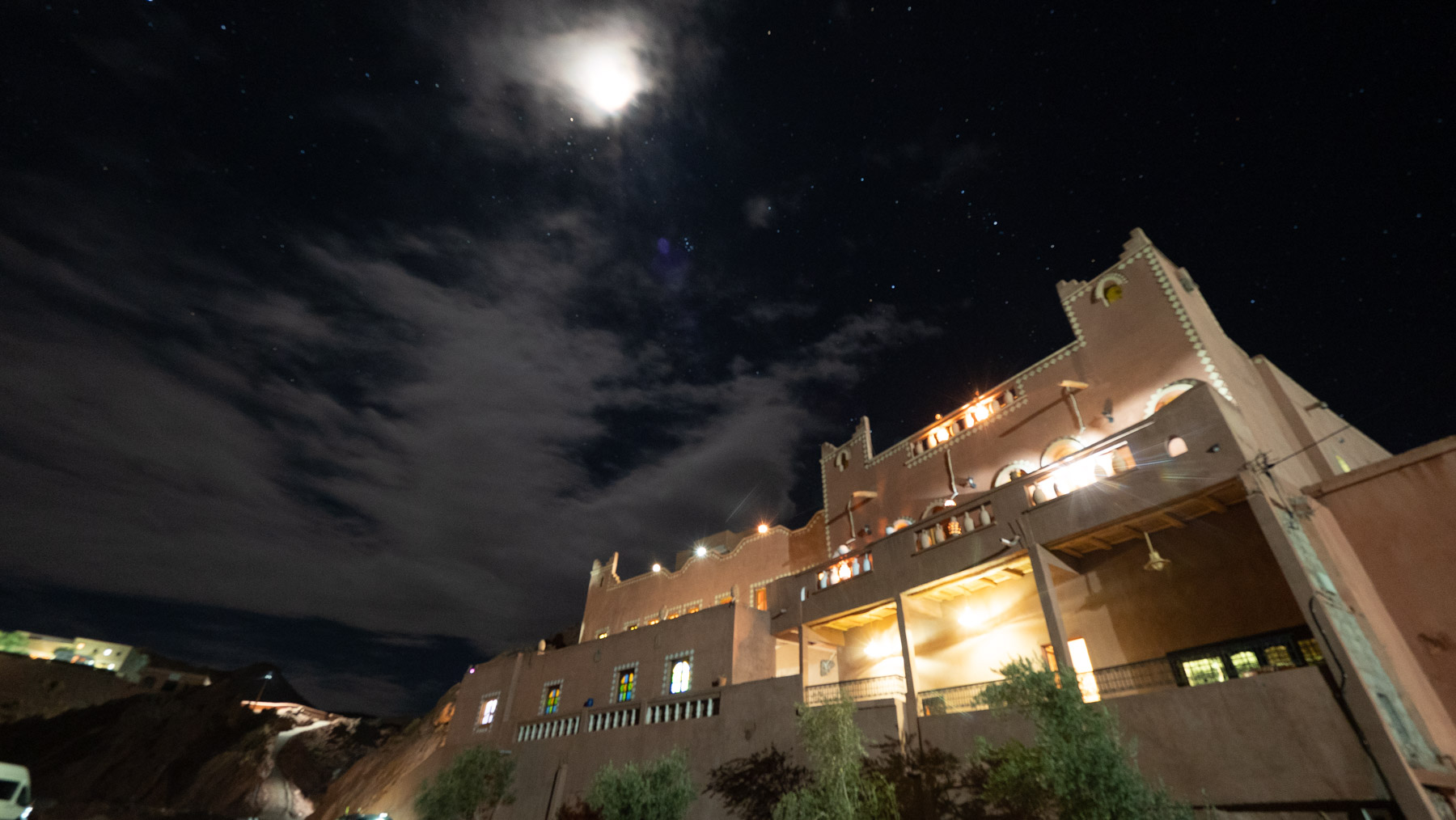
Exploring the Berber Cuisine of Morocco
When travelers embark on a culinary journey through Morocco, one of the highlights is experiencing the rich and flavorful Berber cuisine. The Berbers, an indigenous ethnic group in North Africa, have a long-standing culinary tradition that reflects the diverse landscapes and cultural influences of the region. To truly savor the essence of Berber cuisine, visitors can immerse themselves in the local markets, traditional eateries, and cooking workshops that offer a taste of tradition.
Embrace the Local Markets
One of the best ways to discover the authentic flavors of Berber cuisine is by exploring the bustling markets in towns and villages across Morocco. Visitors can wander through the vibrant stalls filled with a colorful array of fresh produce, aromatic spices, and local specialties. To make the most of the market experience, it’s advisable to engage with the vendors, ask questions about the ingredients, and sample some of the unique offerings.
Try Traditional Dishes
Sampling traditional Berber dishes is a must for anyone seeking to delve into the culinary heritage of Morocco. From hearty tagines and couscous to savory pastilla and refreshing mint tea, the flavors of Berber cuisine are a true delight for the senses. Travelers are encouraged to step out of their comfort zones and try new dishes, as each bite tells a story of tradition and culture.
Join a Cooking Workshop
For those who wish to take their culinary exploration to the next level, participating in a cooking workshop can provide valuable insights into the techniques and ingredients used in Berber cuisine. These hands-on experiences often take place in traditional kitchens or rural settings, allowing participants to learn directly from local chefs and home cooks. By rolling up their sleeves and getting involved in the cooking process, visitors can gain a deeper appreciation for the flavors and customs of Berber cuisine.
Seek Guidance from Locals
When in doubt about the nuances of Berber cuisine, don’t hesitate to seek guidance from locals who are passionate about sharing their culinary heritage. Whether chatting with a friendly street food vendor, striking up a conversation with a restaurant owner, or joining a food tour led by a knowledgeable guide, interacting with Moroccans can offer valuable insights and recommendations. By showing genuine interest and curiosity, travelers can unlock a treasure trove of culinary secrets.
In conclusion, exploring the Berber cuisine of Morocco is a rewarding journey that allows travelers to connect with the rich culinary traditions of the region. By embracing the local markets, trying traditional dishes, joining cooking workshops, and seeking guidance from locals, visitors can unravel the flavors and stories that define Berber cuisine. From the aromatic spices to the savory tagines, every bite offers a taste of tradition and a glimpse into the vibrant cultural tapestry of Morocco.
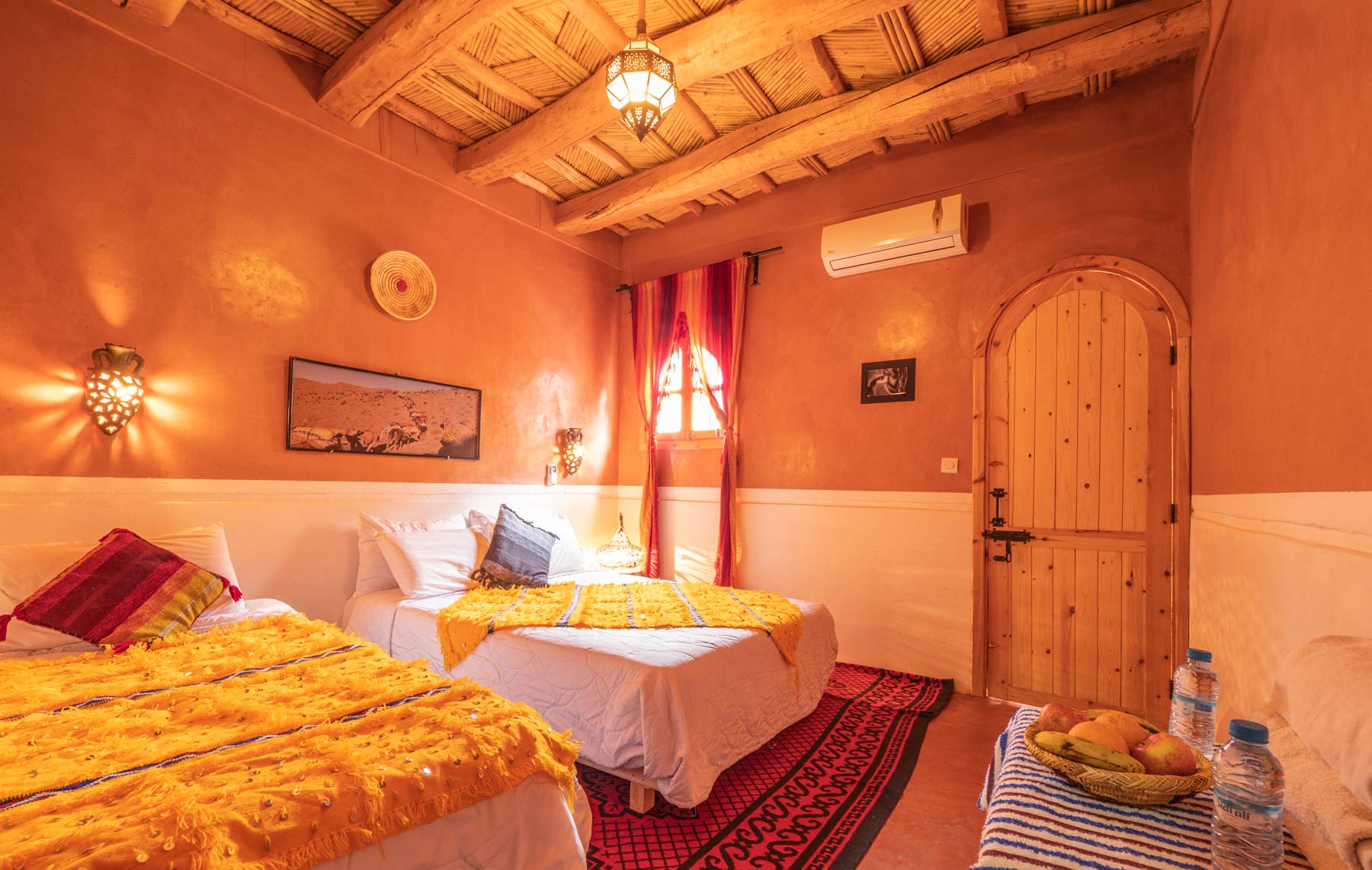
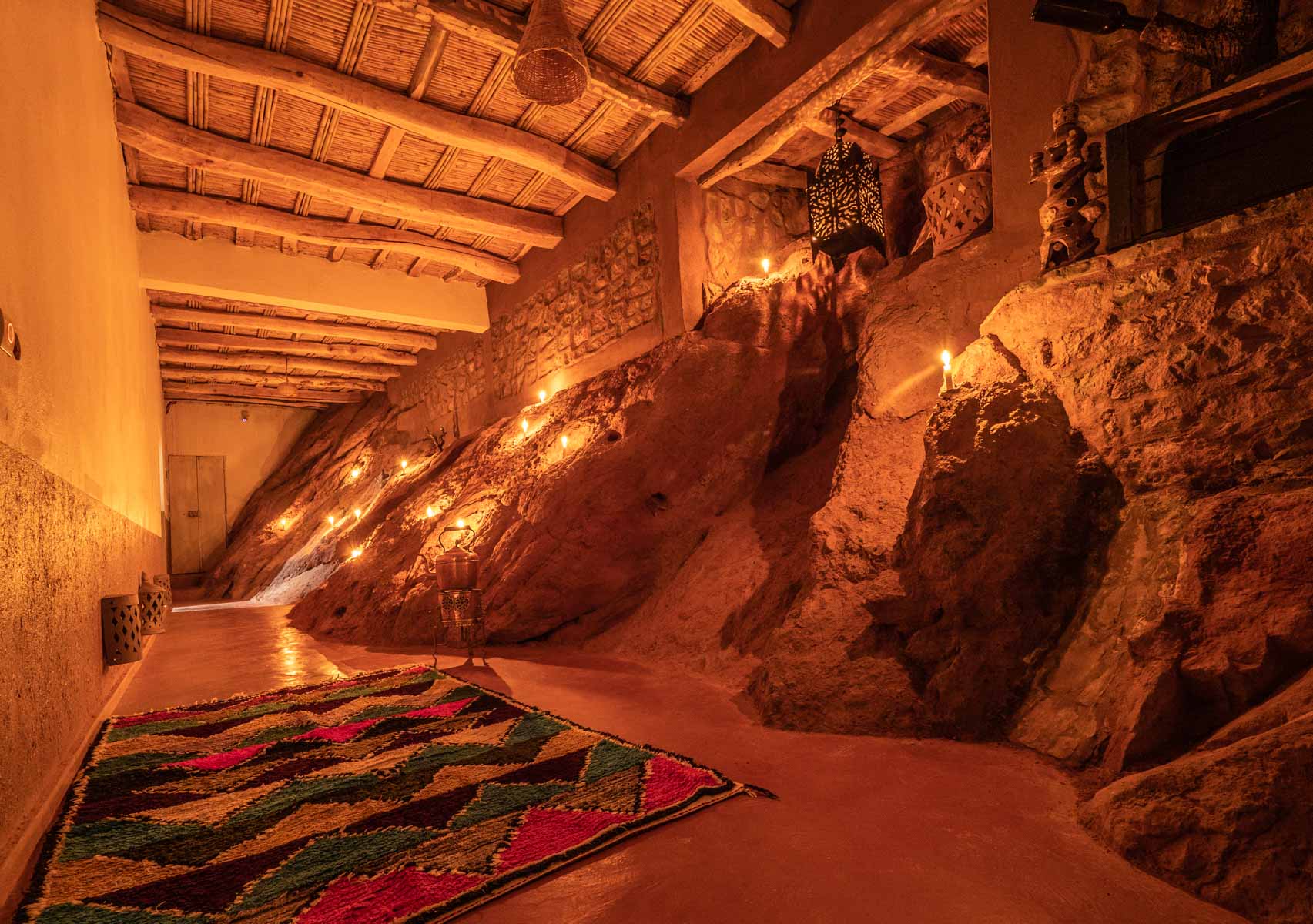
Exploring Berber Cuisine: A Taste of Tradition in Morocco
When it comes to experiencing the rich cultural tapestry of Morocco, delving into the world of Berber cuisine is an absolute must. The Berbers, an indigenous ethnic group in North Africa, have a culinary tradition that reflects the diverse landscapes and flavors of Morocco. From fragrant tagines to hearty couscous dishes, Berber cuisine offers a tantalizing journey for the taste buds.
Discovering the Flavors of the Atlas Mountains
One of the best places to savor authentic Berber cuisine is in the Atlas Mountains. Here, nestled among the rugged peaks and lush valleys, Berber communities have preserved age-old recipes that celebrate local ingredients. Argan oil, a prized Moroccan product, features prominently in many dishes, adding a nutty richness to tagines and salads.
Visitors can also sample harira soup, a hearty and aromatic soup traditionally served during Ramadan, as well as rfissa, a savory dish made with shredded msemen (a type of flatbread), lentils, and chicken. Each bite offers a glimpse into the culinary heritage of the Berber people.
Exploring the Markets of Marrakech
For a vibrant culinary experience, head to the bustling markets of Marrakech. Here, the air is filled with the tantalizing aroma of spices, grilled meats, and freshly baked bread. Visitors can sample an array of Berber delicacies, from kefta tagine (spiced meatballs) to b’stilla (a sweet and savory pie).
Don’t miss the opportunity to try mint tea, a staple of Moroccan hospitality, and amlou, a delicious spread made from argan oil, almonds, and honey. The markets of Marrakech are a sensory delight, offering a true taste of Berber tradition.
Embracing Berber Hospitality in the Desert
For a truly immersive experience, consider a stay in a Berber camp in the Sahara Desert. Here, under the vast expanse of the desert sky, visitors can enjoy traditional Berber meals cooked over an open fire. Khlea, a preserved meat dish, and mesfouf, a couscous-based specialty, are just a few of the dishes that showcase the culinary prowess of the Berber people.
As the sun sets over the dunes, sharing a meal with Berber hosts becomes a moment of connection and cultural exchange. The warmth and generosity of Berber hospitality are as memorable as the flavors of their traditional dishes.
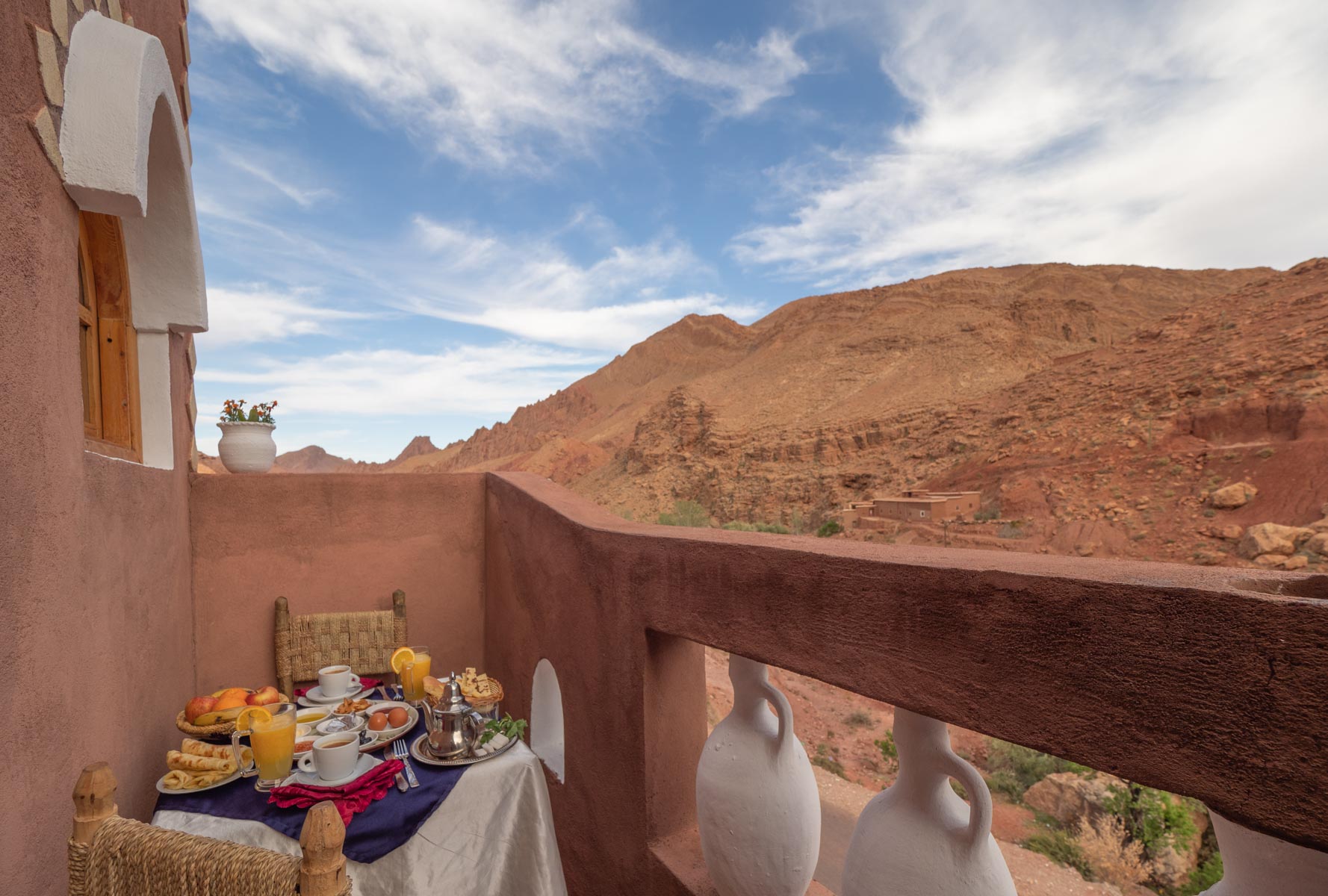
When planning a trip to Morocco to experience the traditional Berber cuisine, there are several recommendations to keep in mind to make the most of your culinary adventure. From preparations before the trip to activities during and after, here are some tips to ensure a memorable experience:
Before the Trip:
Before embarking on your journey to explore the flavors of Berber cuisine in Morocco, it is essential to do some research. Familiarize yourself with the staple ingredients, cooking techniques, and popular dishes of the Berber tradition. This will not only enhance your appreciation for the culinary experience but also help you navigate menus with confidence.
During the Trip:
Once in Morocco, immerse yourself in the local food scene by visiting markets, street stalls, and traditional restaurants. Don’t hesitate to try new dishes and flavors, as Berber cuisine offers a diverse range of tastes and textures. Engage with locals to learn more about their cooking methods and ingredients, and be open to culinary adventures off the beaten path.
After the Trip:
After returning from your Berber culinary journey, consider recreating some of the dishes you tried in Morocco at home. Look for recipes online or in cookbooks specializing in North African cuisine. Share your experiences with friends and family, and spread the word about the rich and vibrant flavors of Berber cuisine.
Recommended Accommodation:
For a truly immersive experience in Morocco, consider staying at Auberge Atlas Dades. This charming guesthouse is nestled in the picturesque Dades Valley, offering stunning views of the Atlas Mountains. With cozy rooms, traditional Berber decor, and authentic Moroccan hospitality, Auberge Atlas Dades provides a perfect retreat after a day of exploring the local cuisine.
Whether you are a seasoned food enthusiast or a curious traveler looking to expand your culinary horizons, a journey to Morocco to savor the tastes of Berber cuisine is sure to be a rewarding and unforgettable experience.
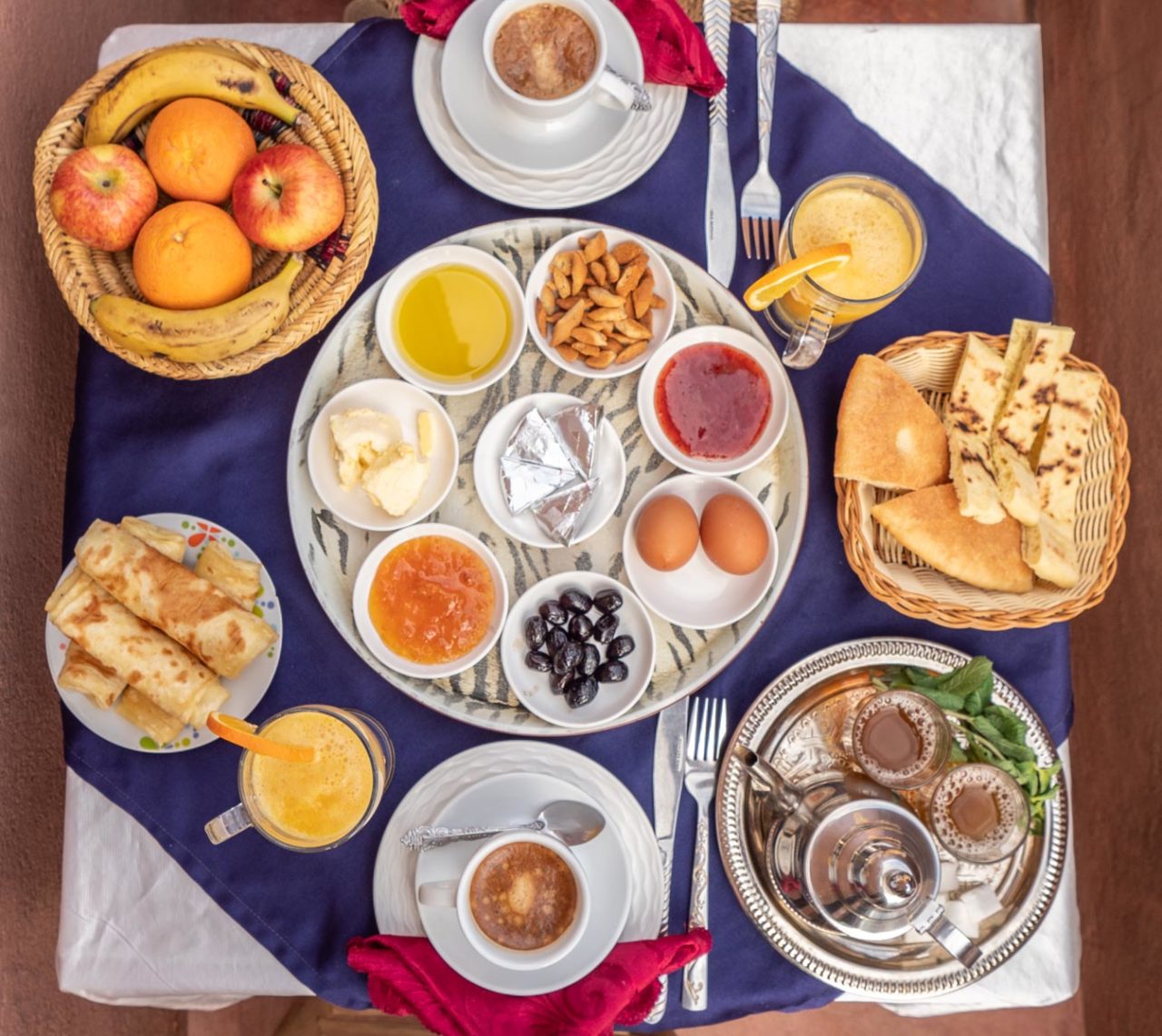

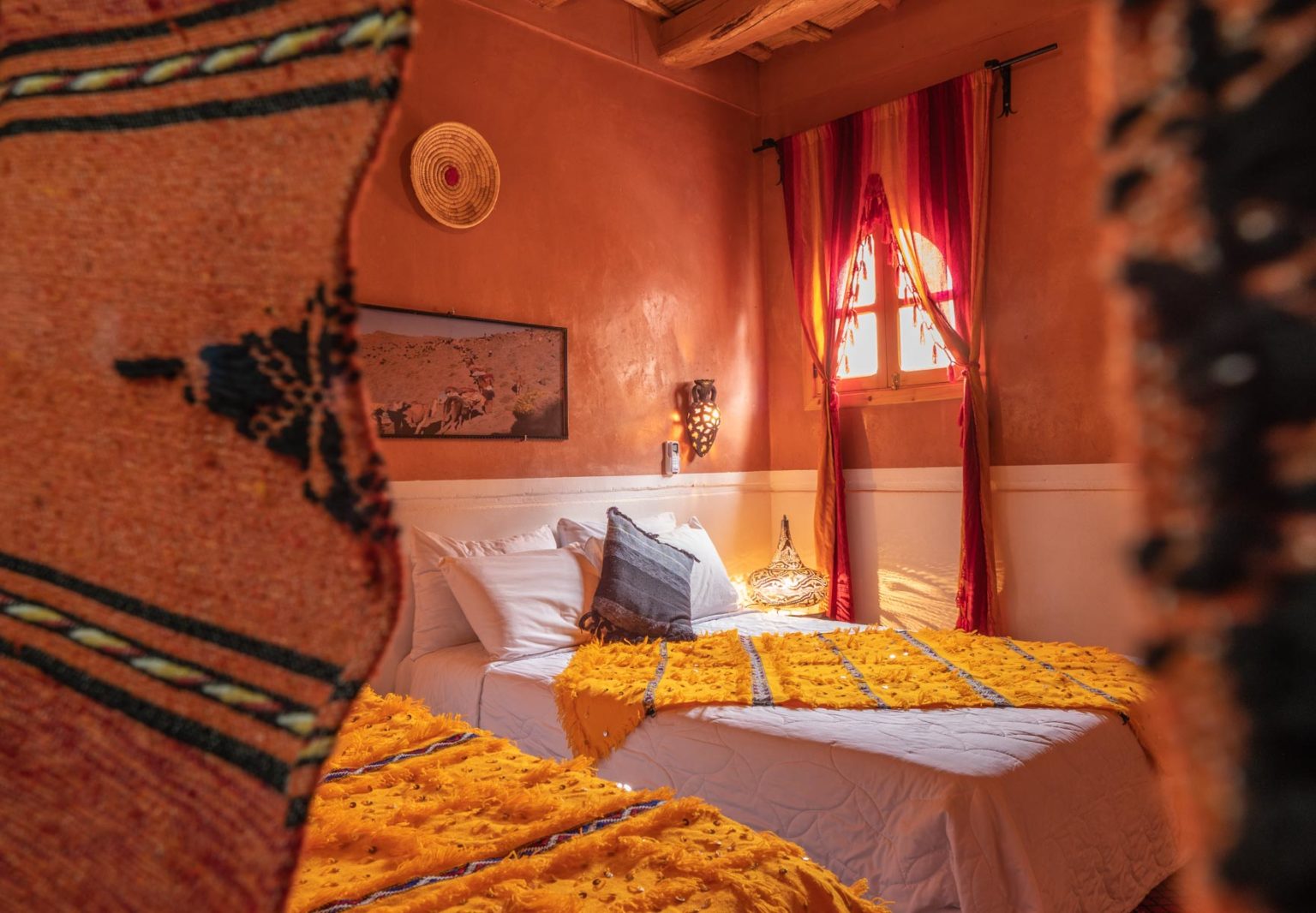
Frequently Asked Questions
1. What is Berber Cuisine?
Berber Cuisine is a traditional culinary style originating from the Berber people of Morocco. It features a rich array of flavors and ingredients that reflect the cultural heritage of the Berber community.
2. What are some typical dishes in Berber Cuisine?
Some typical dishes in Berber Cuisine include Tagine, a savory stew cooked in a conical clay pot, Couscous, a staple grain dish often served with vegetables and meat, and Harira, a hearty soup enjoyed during special occasions.
3. How is Berber Cuisine influenced by Moroccan culture?
Berber Cuisine is heavily influenced by the diverse culinary traditions found in Morocco, incorporating spices, herbs, and cooking techniques that are characteristic of the region.
4. Are there vegetarian options in Berber Cuisine?
Absolutely! Berber Cuisine offers a variety of delicious vegetarian dishes that highlight the freshness and flavors of seasonal produce, such as Zaalouk (eggplant salad) and Briouats (stuffed pastries).
5. What beverages are popular in Berber Cuisine?
Popular beverages in Berber Cuisine include Mint Tea, a refreshing drink served with sugar and fresh mint leaves, and Ayran, a yogurt-based drink that complements spicy dishes.
6. How can I experience Berber Cuisine in Morocco?
To experience Berber Cuisine in Morocco, consider dining at local restaurants, participating in cooking classes, or joining a food tour that explores the culinary traditions of the Berber people.
7. Are there specific dining customs associated with Berber Cuisine?
Yes, Berber Cuisine is often enjoyed communally, with diners sharing dishes from a central platter using Bread as a utensil. It is a social experience that fosters a sense of connection and hospitality.
8. What are some unique ingredients used in Berber Cuisine?
Unique ingredients in Berber Cuisine include Argan Oil, a nutty oil used for cooking and drizzling, Ras el Hanout, a complex spice blend, and Preserved Lemons, which add a tangy flavor to dishes.
9. Is Berber Cuisine spicy?
While Berber Cuisine can incorporate spices for flavor, it is not necessarily overly spicy. Dishes are often well-balanced, allowing the natural flavors of
